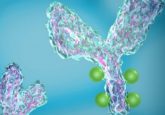Is aspirin therapy associated with a reduced risk in hepatitis B related liver cancer?

A colaborative study by researchers at Taichung Veterans General Hospital (Taichung, Taiwan), E‐Da Hospital (Kaohsiung, Taiwan), Fu Jen Catholic University (New Taipei City, Taiwan) and National Taiwan University Hospital (Taipei City, Taiwan) conducted a nationwide cohort study to determine if aspirin therapy could reduce liver cancer risk. These findings could help hepatologists treat patients with chronic Hepatitis B infection.
Hepatitis B contracted through contact with an infected person’s blood or bodily fluid, is a viral infection that attacks the liver. Previous research has suggested that daily aspirin therapy may prevent the development of cancer. However, clinical evidence is lacking for the effectiveness of aspirin therapy in preventing HBV‐related liver cancer.
Although current antiviral medicines such as nucleos(t)ide analogue therapy could significantly reduce liver cancer risk, these therapies do not completely eliminate the risk. Additionally, most HBV carriers are not indicated for antiviral therapy, so another effective way of reducing liver cancer risk needs to be developed.
Lead investigator, Teng‐Yu Lee (Taichung Veterans General Hospital) commented: “Aspirin has been investigated to explore its chemopreventive effect in cancers that are related to chronic inflammation, particularly in the prevention of colorectal cancer. However, clinical evidence supporting the chemopreventive effect of aspirin therapy on liver cancer remains limited. Therefore, we conducted a large‐scale cohort study to evaluate the association of aspirin therapy with HBV‐related liver cancer.”
The team retrieved medical records from the National Health Insurance Research Database between 1998 and 2012. They screened records of 204,507 patients with chronic hepatitis B, excluding patients with other forms of infectious hepatitis. 1553 patients who had continuously received daily aspirin for at least 90 days were randomly matched 1:4 with 6212 patients who had never received anti‐platelet therapy by means of propensity scores consisting of baseline characteristics, the index date and nucleos(t)ide analogue (NA) use during follow‐up. The researchers analyzed both cumulative incidents of and hazard ratios for HCC development after adjusting for competing mortality.
Cumulative incidence of liver cancer in the group treated with aspirin therapy was significantly lower than that in the untreated group in 5 years. Multivariate regression analysis revealed that aspirin therapy was independently associated with reduced liver cancer risk. This was further supported by sensitivity subgroup analyses. Older age, male gender, cirrhosis and diabetes also were independently associated with an increased risk. Interestingly nucleos(t)ide analogue or statin use was associated with a decreased risk.
“For effectively preventing HBV‐related liver cancer, the findings of this study may help hepatologists treat patients with chronic HBV infection in the future, particularly for those who are not indicated for antiviral therapy. We are pursuing prospective investigations for further confirming the findings,” Lee concluded.
Sources: Lee TY, Hsu YC, Yu SH, Lin JT, Wu MS, Wu CY. Association of Aspirin Therapy with Reduced Risk of Hepatocellular carcinoma in Patients with Chronic Hepatitis B. Oral Abstracts (Abstracts 1–263). Hepatology. 66: 1–148. doi:10.1002/hep.29500 (2017); Science daily press release

